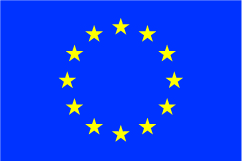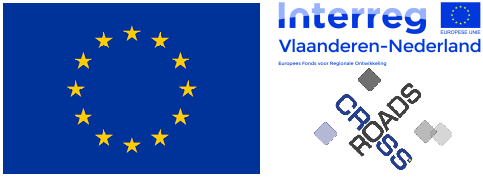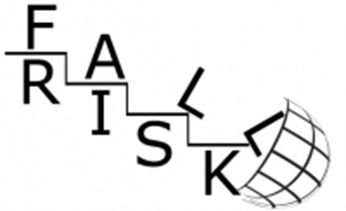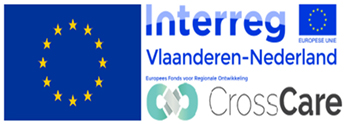USGICA: Unidirectional Security Gateway for IoT Camera Applications
Industrial players need to collect valuable data from various security-relevant control systems from highly protected locations and data networks.
The objective of the project is to create and test an integrated system to allow capturing signals from cameras located at highly protected industrial areas.
This sensitive data is used for remote control/monitoring. In order to avoid malicious attacks, those remote channels have to be secured appropriately. For small companies, a customized and fair-price solution is needed to ensure sensitive data protection, safety and cybersecurity.
Today, dedicated camera systems, IoT solutions, data diode technology, remote configuration, notification systems are all existing. Until now, not a single integrated system exits which merge the advantages of each of the different technologies. Industrial IoT networks have to address this issue adequately. Data diodes complement to other secured connections since they will physically let the data pass only in a pre-defined direction (unidirectional communication).
The integration of unidirectional communication network technology (Data diodes, DataSecure – RadiÖko) and the IoT Gateway technology provides support for event notification (COMmeto). The networked camera systems send their data through a data diode (unidirectional network). The data on the receiver part of the data diode goes through the IoT Gateway, which makes the camera streams remotely manageable and allows for event notification.
A pilot setup is established by COMmeto (BE) and RadiÖko (HU) to develop a system which is easily accessible, configurable and affordable by SMEs.
European Union’s Horizon 2020 Programme
This project has received funding from the European Union’s Horizon 2020 research and innovation programme under grant agreement No 777455.
AAL-Pelosha
One of the key factors influencing people’s ability to lead an active and independent life is remaining
healthy. This goal becomes ever more difficult to achieve as people age. Yet, undertaking adequate
measures to prevent diseases, reacting to inevitable development of frailty and eventually making sure
the developed chronic condition does not exclude one from active participation in the society is
especially important for older adults. Therefore, PELOSHA aims to employ advances in mobile- and
tele-health, artificial intelligence and internet of things to create a comprehensive ICT-based solution
that makes the challenge of managing one’s own health easier. The existing technologies allowing to deal
with individual aspects of this challenge will get integrated into a smart application facilitating a
personalised approach to healthy living for older adults. The PELOSHA solution will be co‑designed and
tested with participation of diverse end user groups from 3 European countries.
www.aal-europe.eu/ Pelosha project
AXO-SUIT
COMmeto is the SW and HW integrator and main industrial partner in the development of a modular, assistive exo-skeleton in the EU AAL project AXO-SUIT.
AXO-SUIT is a three year project stated on October 1st 2014 and is funded under the Active and Assisted Living (AAL) Joint
Programme, Call 6. The project brings together 3 universities and 5 companies active and experienced in R&D of assistive devices
to specify the full-body personal mobility, reaching, and grasping requirements of elderly persons allowing them to continue
managing their daily activities related to voluntary occupation (maintaining gardens or carrying groceries of more needy people),
as well as participating in local social activities while preserving their health and providing motivation to remain active and
independent.
http://www.axo-suit.eu/
‘Ver’breek het vallen
Het bedrijf COMmeto (België) werkt in het kader van het EU-project CrossRoads2 aan de continue monitoring van ouderlingen om een potentieel valrisico sneller te detecteren.
Het innovatief karakter van het ‘Ver’breek het vallen project zit voornamelijk in de ontwikkelen van een
individuele en continue valrisico-screening toepassing op basis van continue persoonslocatiebepaling en
balansmetingen. En dit gebaseerd op een unieke combinatie van bestaande meetsystemen (Mopas, Quuppa, Moticon)
maar toegepast specifiek voor met een psychiatrische kwetsbaarheid voor wie de reeds bestaande meetinstrumenten
niet toereikend of toepasbaar zijn.
Dit project kadert in een grensoverschrijdende samenweking met Ivengi (Nederland), OPZ Geel (België) en Mobilab
(België). COMmeto heeft ruime ervaring in de nodige sensortechnieken en de netwerkcommunicatie-intergratie.
Dankzij deze samenwerking kunnen we onze bestaande ervaring verder uitbreiden naar nieuwe sensoren, nieuwe technieken
en nieuwe cloudplatformen. Tevens geeft de toepassing binnen GGZ (Geestelijke GezondheidsZorg) perspectief op
uitbreiding van het marktpotentieel.
Het project wordt via het kaderproject CrossRoads2 gefinancierd vanuit het Europese Interreg Vlaanderen-Nederland
programma (www.grensregio.eu). Interreg Vlaanderen-Nederland stimuleert grensoverschrijdende projecten voor
slimme, groene en inclusieve groei, vanuit het Europees Fonds voor Regionale Ontwikkeling (EFRO).
Meer informatie over de actuele resultaten vind u op de website van CrossRoads2: https://www.crossroads2.eu/
Fallrisk
Improving (the reliability of) existing fall detection systems – while
developing an intelligent framework to assess the risk of older adults falling.
For older adults, falling accidents can be life-changing events. They may
lead to loss of autonomy (necessitating people to move to a nursing home,
for instance) – but psychological side effects are not to be neglected either
(fear of falling might lead to avoidance behavior). Accurate fall detection is
a hot topic. FallRisk therefore investigated how to improve existing fall
detection systems and develop an intelligent framework to assess the fall risk
of older adults.
Falling is the second leading cause of accidental death worldwide.
Research has shown that more than half of the older adults living in a nursing
home – and about one third of the older adults living at home – fall at least
once a year, resulting in severe injuries in 10 to 15% of all cases. The
FallRisk team aimed at limiting the personal and societal burden of falling
accidents to an absolute minimum, while balancing the involvement of (scarce)
formal and informal caregivers.
Project outcomes
- Sensor fusion as the optimal way to detect falling accidents and risks.
- Developing an intelligent backbone that captures and interprets all
data from the sensor network, and that intelligently distributes information
to formal and informal caregivers.
- Conducting user research is key to securing user buy-in and generating useful feedback.
FallRisk Leaflet
Guarantee
A Guardian Angel for the Extended Home Environment.
Safety systems that react automatically to risk events in the home environment.
The ITEA 2 project GUARANTEE set out to develop new ‘active-safety’ systems
that can take a much more pro-active approach to risky situations, offering
automatic in-home support or involving external support services, with the
potential of a whole new market in software-based home-safety solutions.
The result is non-intrusive, active-safety systems that respond to and interpret
human behaviour in an approach capable of preventing many of the more common
accidents in the home.
Guarantee Project Leaflet
Shaken not spilled
Mensen met tremor morsen vaak bij het drinken. Dat creëert een
gevoel van schaamte en vormt een drempel voor hun sociaal leven. Het project “Shaken
not spilled” wil mensen met tremor de kans geven om te kunnen
handelen zoals altijd en zoals iedereen. Daarvoor is een
eenvoudig maar doeltreffend en user-centered product ontwikkeld.
Dit product is een effectief en goedkoop hulpmiddel dat
het morsen door de tremorbeweging tegengaat. Het is onopvallend
en eenvoudig te gebruiken. Daardoor kunnen mensen met tremor terug koffie
drinken uit een gewone tas, of wijn uit een gewoon glas en hebben ze geen nood
meer aan een opvallende en onhandige tuimelbeker!
De laatste prototypes zijn bijzonder beloftevol en hebben
interesse opgewekt in professionele kringen. Met behulp van
CrossCare worden de prototypes verder ontwikkeld en getest op
ruimere schaal. De proeftuinen verschaffen een essentiële
link naar de eindgebruikers zodat het product ontwikkeld en
getest kan worden opdat het aan hun noden en verwachtingen zal voldoen.
Het initiële idee werd bedacht door een multidisciplinair
studententeam van de KULeuven: het Tremtech team. Deze studenten werkten
een jaar lang aan een Product Innovation Project
(http://pipleuven.be/) in opdracht van een externe organisatie:
RVO-Society (www.rvo-society.be). COMmeto, een bedrijf met ervaring en een partnernetwerk
in assistieve technologieën, brengt, samen met het Tremtech team,
het product op de markt.
Dit project kadert in een grensoverschrijdende samenwerking met COMmeto
(organisatie) en InnovAGE, LiCalab, CareVille, CIC en EIZT (proeftuinen).
Het project wordt via het kaderproject CrossCare gefinancierd vanuit het
Europese Interreg Vlaanderen-Nederland programma (www.grensregio.eu).
Interreg Vlaanderen-Nederland stimuleert grensoverschrijdende projecten voor
slimme, groene en inclusieve groei, vanuit het Europees Fonds voor Regionale Ontwikkeling (EFRO).
Meer informatie over de actuele resultaten vind u op de website van CrossCare:
www.crosscare.eu.










